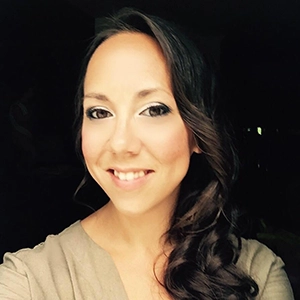What is School Psychology?
School psychology is a field of psychology dedicated to the intersection of psychology, mental health, and education to help students and individuals succeed academically, socially, behaviorally, and emotionally. While most school psychologists work in educational settings, others work in residential and day habilitation programs, juvenile justice facilities, clinics, and hospitals. School psychologists are frequently involved in assessing students’ and individual needs, providing counseling and support, and working with teachers, families, and administrators to develop and implement interventions and support systems. They also address issues such as learning, mental health, and behavior differences. School psychologists work with children, educators, families, and other key partners to:
- Prevent academic, behavioral, and social-emotional challenges through implementing school-wide and agency-wide programs to address social-emotional, behavioral, and learning differences.
- Provide counseling and social-emotional support
- Collaborate and consult with teachers, parents, and other staff to help children, schools, and agencies thrive
- Assess for learning, behavioral, and social-emotional differences
You can learn more about the profession of school psychology by visiting National Association of School Psychologist’s (NASP).
What makes Niagara University’s program unique?
Niagara University’s school psychology program is grounded in a scientist-practitioner model commitment to developing skilled practitioners and leaders who, in the Vincentian tradition, foster human growth, well-being, emotional stability, and academic success within culturally diverse contexts. Our program prepares graduates to make a meaningful difference for children, families, and schools through both individual and systemic approaches.
What makes Niagara University’s program distinctive is the depth and breadth of practical expertise among our core faculty. Each faculty member has or is actively practicing as a school psychologist, bringing experience from a wide range of settings, including public schools, state agencies, alternative schools, preschool, and hospital programs. Aside from practice, faculty members are active scholars and consultants to schools, agencies, and organizations both locally and nationally.
Niagara University’s program highlights two areas of emphasis embedded throughout students’ course of study: Multi-Tiered System of Supports (MTSS) and counseling, giving students extensive training in both supporting students’ academic, behavioral, and social-emotional needs and implementing school-wide systems. MTSS is a framework that helps schools provide different levels of support based on a child or individual’s needs, so you’ll learn to design, deliver, and research interventions that help every student thrive. In addition to these focus areas, students gain broad training in consultation, assessment, prevention, and intervention strategies, ensuring a well-rounded preparation for a variety of school and community contexts. With more counseling coursework than most programs nationwide, Niagara helps students gain additional preparation for working directly with students, individuals, and families on social-emotional and mental health concerns.
How many credit hours is the program?
63 credit hours
How long will it take to complete the program of study?
Students can complete the program in three years
Can I attend the school psychology program part-time?
Due to the length and structure of the program, students typically do not complete it on a part-time basis. The program is designed for full-time enrollment.
After completing the program, what degree will I receive?
Students will receive a Master’s of Science Degree and Certificate of Advanced Study.
Where can I work after I graduate with a school psychology degree?
While most school psychologists work in K-12 school-based settings, others work in residential and day habilitation programs, juvenile justice facilities, clinics, and hospitals.
What supervised experience will I gain when enrolled in the program?
- As part of graduate training in school psychology, you’ll complete more than 1,600 hours of supervised school-based field experience:
- Practicum (at least 400 hours): Short-term, supervised placements in K–12 schools where you begin applying skills directly with students, teachers, and families.
- Internship (1,200 hours): A full-time, year-long, supervised placement in one or more K–12 schools, providing comprehensive, hands-on experience in assessment, intervention, consultation, and school-wide practices.
These school-based experiences allow students to develop the professional knowledge, skills, and confidence needed to support children, families, and educational communities effectively.
Is the internship paid?
- Given the rigor of the school psychology degree, we encourage students to take paid internship opportunities both locally and across the nation.
- Each year, we host an internship fair for districts in the Buffalo-Niagara region that are offering paid internships.
Is the program accredited?
Yes, Niagara University’s school psychology program is accredited by the National Association of School Psychologists.









